Student talks telehealth, nursing in the DPRK
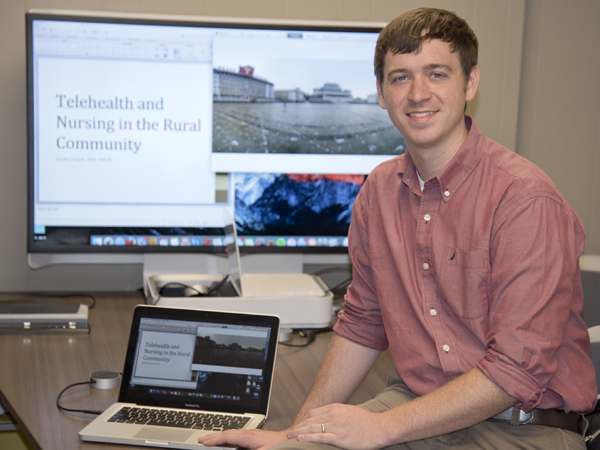
Published in News Stories on September 29, 2016
How does a cardiology nurse from Toomsuba, only two weeks before his wedding day, find himself presenting a lecture “Telehealth and Nursing in the Rural Community” in the Democratic People's Republic of Korea? (That's North Korea, home of supreme leader Kim Jong-un, not South Korea, host of the 1988 Summer Olympics and diplomatic partner of the United States.)
For Jacob Crouch, a nurse at the University of Mississippi Medical Center who is enrolled in the BSN-PHD program offered through the School of Nursing and the School of Graduate Studies in the Health Sciences, his interest in North Korea began at a prayer meeting when a friend prayed that the leader of the DPRK would be saved.
“I remember thinking that's a very noble thought, but it's highly unlikely,” Crouch said. “It kind of exposed in my mind a challenge of my faith. I started wanting to go to North Korea to see if I could have any kind of impact there.”
Crouch learned about the Pyongyang University of Science and Technology through a friend with Mississippi ties who teaches at the English-speaking, private university located in the capital city. The university is adding a nursing school and will soon need instructors. Crouch entered the BSN-PhD program in order to one day be qualified to teach at PUST.
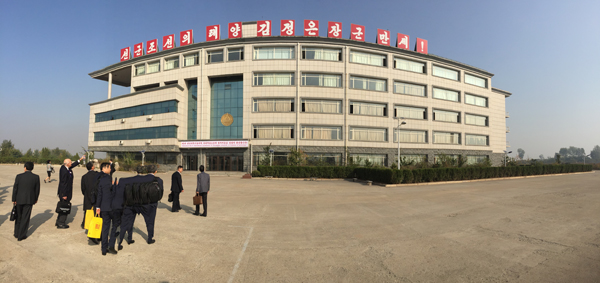
Attendees of the 3rd International Conference of Science and Technology approach the main academic building at Pyongyang University of Science and Technology.
When PUST sought out contributors for the 3rd International Conference of Science and Technology in 2015, this friend encouraged him to submit a paper. Crouch said he never expected it to be accepted. But it was, and he received the invitation to speak.
Then began the lengthy process of acquiring a visa to both DPRK and China. Crouch was to fly to China first because there are no flights from the U.S. to the DPRK.
A little less than two weeks from departure time, Crouch said he was very nervous about the state of his visa.
“I had bought all my tickets,” Crouch said. “I had spent a ton of money just getting plane tickets, and I hadn't gotten a visa yet. It wasn't until about a week and a half to two weeks before I was to leave that I got a picture of my visa in an email.”
When Crouch departed from U.S. soil, his fiancée had only one request. “She said, 'The only thing I ask is that you come home.' That's when I had the thought that I might not make it back for the wedding.”
When he landed in Beijing, Crouch was instructed to hand over his passport to a representative from the school who he described as a runner between China and the school.
“You're kind of working on faith giving this person your passport,” Crouch said. “The scary part wasn't giving up my passport. It was scarier in the Pyongyang airport not understanding anything anyone was telling me and having two different people pointing and telling me two different things.”
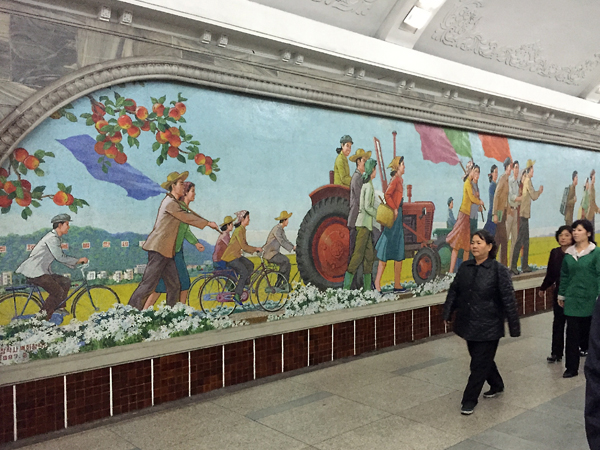
Beautiful mosaic murals adorn the walls of the subway station in Pyongyang.
In Beijing, he met up with other conference attendees, including some who spoke English. On the flight between Beijing and Pyongyang, his new acquaintances translated the in-flight movie, a patriotic-themed concert that spoke negatively of “American Imperialists.”
“Everywhere you went in Pyongyang, there was this music,” Crouch said. “There were cars that drove around with speakers on the top that blared the music. It was always playing in the subway stations.
“I didn't know what the billboards and songs said, but it was anti-American and anti-Japanese sentiment. The guys who were Korean-Canadians would almost blush at what they were reading, and when I would ask them about it, they would say, 'You don't want to know.'”
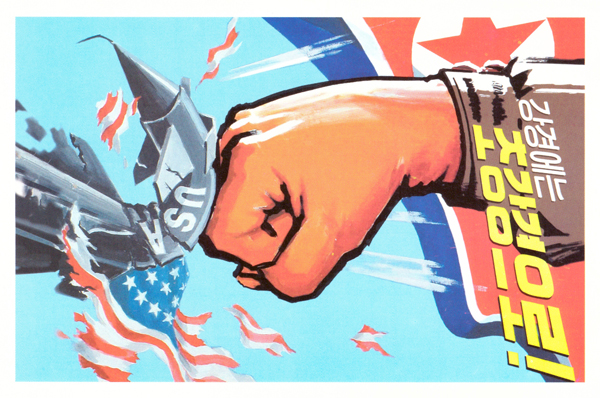
Despite the anti-American sentiment, as shown in the post card above, Crouch said he felt welcome in the country and hopes to go back.
Crouch said that he received instructions on how to dress for the trip.
“Some of the instructions I got were 'don't wear blue jeans because Koreans can't wear them,'” he said. “They view it as extremely western. My understanding was that they could not wear blue jeans because that was identified with America.”
Guided tours were provided for the conference attendees, including a trip to pay respect to the massive statues of Kim Il-sung and Kim Jong-il at the Mansu Hill Grand Monument.
“We happened to be going when there were tons of other people going,” Crouch said. “Bus after bus after bus came in. The people were all going to bow to the statues. Everyone was wearing suits or traditional ladies' dresses. It was staggering the number of people going to pay respect to the statues.”
Crouch said he was in the company of an impressive line-up of speakers during the conference, including a Nobel Prize-winning chemist, the former science and technology advisor to Madeleine Albright, a data analyst for UnderArmour, a former South Korean prime minister and an astronaut turned physician who spent his spare time setting up Ebola treatment centers in Liberia.
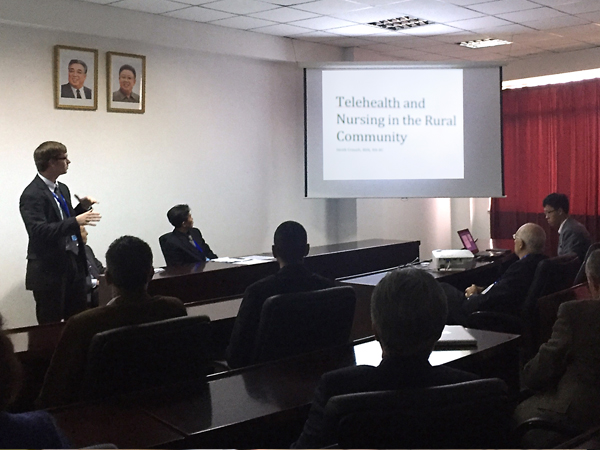
Crouch makes his presentation during his visit to North Korea.
Despite the anti-American sentiment, Crouch said that he was treated well and never felt threatened. He said that, for the average North Korean, there is a difference between the U.S. government and an individual U.S. citizen.
“They are taught that America preemptively started the Korean War that divided the nation,” Crouch said. “If you've only known that in all of your schooling, and your media is state-owned, and you've never been able to leave the country, what else would you think? But they have to reconcile that they've met nice Americans.”
Crouch hopes to go back one day and teach at the university, to give students the opportunity to learn about the world outside of North Korea.
“That was part of the benefit of being able to go for me,” Crouch said. “My paper was nothing earth shattering. But I was able to expose them to something outside of where they are, to open their eyes to something else.”
Photos
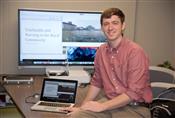 | Gold Awards 08-26-2016-061.jpg High Resolution Medium Resolution Low Resolution |


